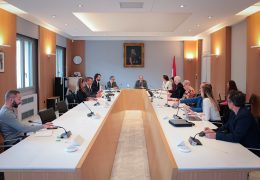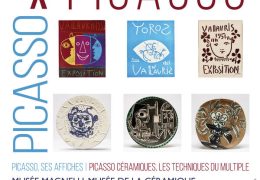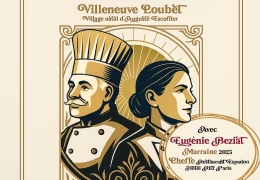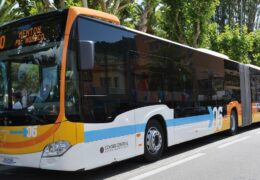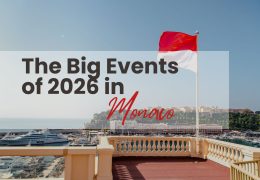Provençal: The Dialect of the French Riviera
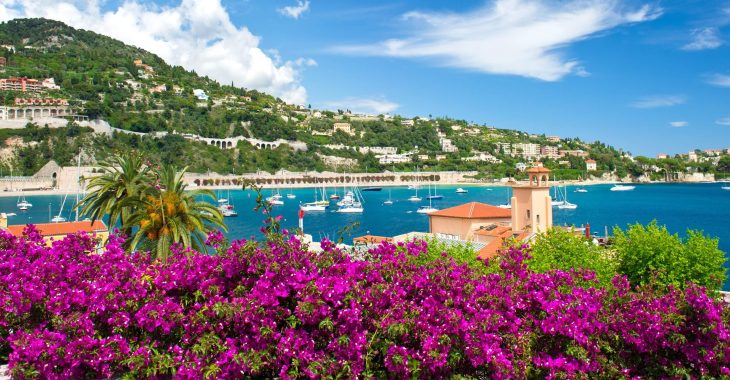
Everyone knows that the official and spoken language of the Principality of Monaco is French. The same, of course, applies throughout the French Riviera. There is also, in the Grimaldi monarchy, a local dialect (Monégasque), which is also taught in schools and is lexically rich, though rarely used.
Italian and English are also spoken here, although, unfortunately, especially by public service staff (and particularly when it comes to our language), there is some reluctance to use them, perhaps due to a form of proud localism.
However, in the French Riviera, there is another language spoken or at least understood by about one hundred thousand inhabitants, almost exclusively in the inland areas: Provençal.
Its origins go back to a long linguistic history that dates back even to the Roman Empire. At that time, in Gaul, the educated class spoke Latin, while the general population expressed themselves in a mixed Gallic-Latin language.
In the early Middle Ages, during the formation of the Romance languages, in what had by then become France, two idioms developed: “langue d’oïl” in the north (which would later evolve into modern French) and “langue d’oc” in the south: this distinction came from how people said the word “yes”. The latter language became known as “Occitan”. It was with this language, particularly between the 12th and 14th centuries, that the great season of courtly literature and troubadour poetry (the poets known as “trouvères”) developed. A mixture of French and Catalan, it influenced the contemporary Spanish and Italian literatures. Unfortunately, by the 16th century, with the start of the Modern Age, the forms of autonomy and independence that characterized medieval society gave way to absolutism. With the Edict of Villers-Cotterêts in 1539, the written use of Occitan was prohibited, and gradually its spoken form disappeared as well.
However, during the 19th century, there was a historical-literary movement to revive Occitan (or, more precisely, Provençal, the particular form spoken in Provence, and thus also in the French Riviera). Along with six other young poets, Frédéric Mistral founded the cultural movement “Le Félibrige” with the aim of reviving this language, even publishing a dictionary. For this achievement, Mistral was awarded the Nobel Prize for Literature in 1904. Another notable writer, Alphonse Daudet (1840 – 1897), dedicated himself to this cause, followed in the next century by Jean Giono (1895 – 1970) and, most notably, by Ezra Pound (1885 – 1972), the greatest American poet of the 20th century, who adapted the modern tastes of Provençal medieval songs and ballads in his two poetry collections “Provença” and “I Cantos”.
As mentioned, Provençal is a variant of Occitan, differing in some orthographic and phonetic elements. It is further subdivided into four subgroups: Rodanian Provençal, Mistralian Provençal, Maritime Provençal (typical of Marseille), Nice Provençal, spoken in Nice and its surroundings, and Vivaro-Alpine Provençal, spoken in the Luberon and Alpes-de-Haute-Provence.
In the 1980s, Provençal became an optional subject for the high school graduation exam and is also taught at universities.
Finally, for curiosity and illustrative purposes, here are some examples of Provençal words, with their translations:
- Peuchère!: Poor thing!
- Un pitchoun, un miston: A child.
- Le cagnard: The sun.
- La pièce à frotter: The dishcloth.
- Boudiou!: An expression of surprise.
- L’an Pèbre: A long time ago.
- Une coucourde: A pumpkin (figuratively, a “hardhead”).
- Degun: No one.
- Être ensuqué: To be a little tired.
- Être mouligasse: To be clumsy.
- Estouffe-gari: Annoying.
- La castagne: A fight.
- Lou capeou: A hat.
- Fada: Crazy, foolish.
- Un cacou: A “playboy” of the Riviera.
- Une cagole: A vulgar or easy girl.
And, since we are now near the end of the year, we wish the reader: “Bon bout d’an“!






